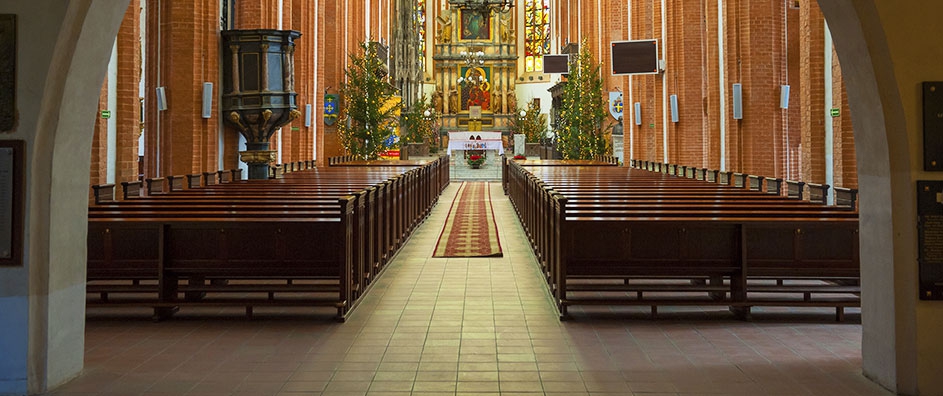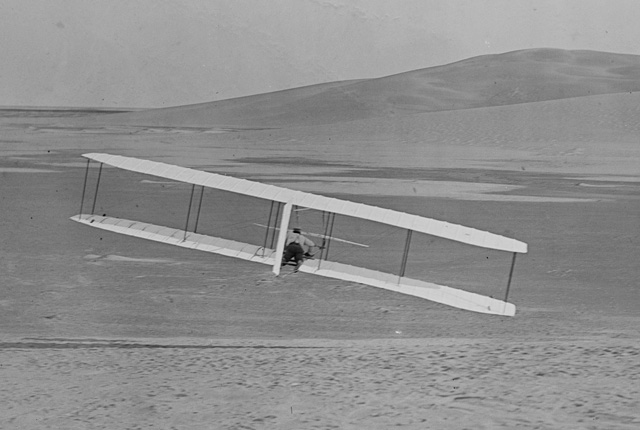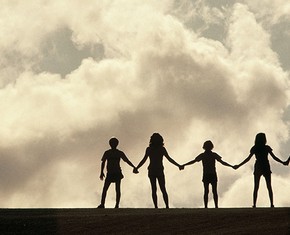The views expressed in our content reflect individual perspectives and do not represent the authoritative views of the Baha'i Faith.
Were you raised in a religion? Did your parents or your extended family have a religious tradition they expected you to adopt and believe in and live?
If you answered yes to those questions, you’re not alone. Most people inherit their religious beliefs. Passed down from their ancestors and taught by generations of parents to their children, those beliefs become part of the family culture and the entire fabric of family life. That makes them particularly hard to lose – but if you’re an authentic spiritual seeker, you will want to start your journey of discovery by questioning the belief system you’ve inherited, the traditions you’ve absorbed as a child and the underpinnings of your family’s faith.
What’s the greatest barrier to the discovery of new beliefs? Old beliefs.
Orville and Wilbur Wright, a pair of brothers who were bicycle mechanics from Dayton, Ohio, had to battle old beliefs during their quest for flight. Everyone who had attempted flight before them, all the way back to Leonardo da Vinci, had built unsuccessful gliders. Even the Wright Brothers’ biggest influence, the German aviation pioneer Otto Lilienthal, the first person to make repeated gliding flights, died in 1896 in one of his gliders. Lilienthal’s tragic death made Wilbur realize the importance of controls in an aircraft. The brothers studied all the models of the existing flying machines, and were determined to come up with something better. And they did, when they invented the idea of actually warping the wings of their aircraft, which controlled the airflow over the large surfaces of their biplane. In 1903, their invention worked, and they made the world’s first sustained manned aircraft flight.
Every inventor and artist and change agent faces this challenge. In order to create something new, we must sweep away the accumulated dust of everything that has come before. Breakthroughs in every discipline happen when the discoverers can see beyond what already exists to a new vision of what could potentially exist. And for seekers on a spiritual path, relying on tradition to dictate belief can be the biggest roadblock.
7. Tradition.
Our cultural and religious and familial traditions have enormous power over us, so they can be huge potholes in the path. The great scholar of myth Joseph Campbell said “We must be willing to get rid of the life we’ve planned, so as to have the life that is waiting for us. The old skin has to be shed before the new one can come.”
Of course, this advice doesn’t mean seekers have to throw out all traditional wisdom completely – it only suggests that every tradition should undergo the same kind of investigation and rational analysis any new idea would receive.
Abdu’l-Baha says:
Every individual member of humankind is exhorted and commanded to set aside superstitious beliefs, traditions and blind imitation of ancestral forms in religion and investigate reality for himself. – The Promulgation of Universal Peace, p. 433.
Spiritual search means conducting a rigorous personal inventory of your beliefs and then challenging them, the same way artists and inventors approach their creative undertakings. If you have a religion, a belief system of some kind, subject it to some rational inquiry. Ask yourself why you believe the tenets of that particular Faith. Is it because they ring true for you? If so, hold on to that belief – but if not, lose it and begin to look for one that fits you:
Now is the time for us to make an effort and enable it to advance apace with the philosophy of material investigation so that awakening of the ideal virtues may progress equally with the unfoldment of the natural powers. In the same proportion that the body of man is developing, the spirit of man must be strengthened; and just as his outer perceptions have been quickened, his inner intellectual powers must be sensitized so that he need not rely wholly upon tradition and human precedent. In divine questions we must not depend entirely upon the heritage of tradition and former human experience; nay, rather, we must exercise reason, analyze and logically examine the facts presented so that confidence will be inspired and faith attained. Then and then only the reality of things will be revealed to us. – Abdu’l-Baha, The Promulgation of Universal Peace, p. 326.

















Comments
Sign in or create an account
Continue with Googleor